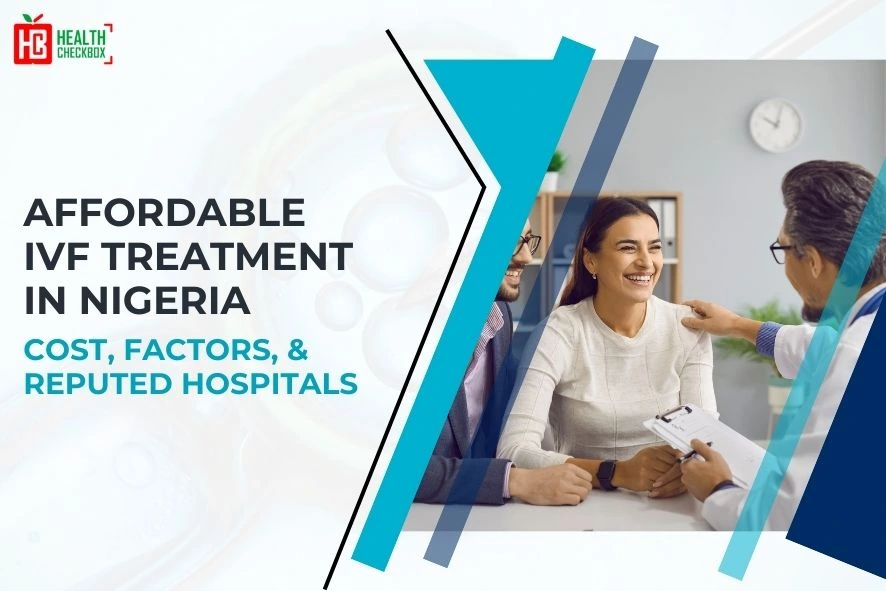In vitro fertilization (IVF) is a gift of the modern world. Couples who are unable to conceive naturally can benefit from this treatment. Now that the use of smartphones, and the internet has had a big impact on the minds of youth, they are always eager to get information at the earliest. This desires people to explore the internet for a wide range of treatment options which otherwise was not available earlier. In this blog, we will look at the cost of IVF treatment in Nigeria and what factors influence the cost.
Assisted reproductive technologies like IVF is one such area of interest where one can get emotional support. Many clinics have their website, and so patients can check for different fertility clinics by sitting at home.
In Nigeria, many infertile couples are turning to fertility centers. In this situation, they can fulfill their desire of raising a newborn in the family. IVF is a modern medical procedure and involves the creation of an embryo externally. Later, this embryo is put into the woman’s womb. Couples facing infertility issues due to various factors, including blocked fallopian tubes, endometriosis, or low sperm count are ideal candidates for this medical procedure.
Cost of IVF Treatment in Nigeria
Here are some factors that affect the cost of IVF treatment in Nigeria:
- Clinic,
- The location, and
- The specific medical needs of the couple,
- Egg or sperm donation,
- Use of ICSI – intracytoplasmic sperm injection.
A single IVF cycle is likely to cost in Nigeria from ₦1,000,000 to ₦ 2,500,000 or $2,000 to 5,000 USD. Besides, you may have to pay some extra money for other costs. Undeniably, it’s absolutely essential to get familiar with the detailed costs involved in this procedure for the prospective parents.
Breakdown the Cost for IVF Treatment
Below is a general breakdown of the costs associated with this treatment in Nigeria:
1. Initial Consultation and Diagnostic Tests
It determines the root cause of infertility. Some of the common tests include:
- Ovarian reserve testing,
- Semen analysis,
- Infectious disease screening,
- Gynaecological endoscopy.
They can range from ₦ 50,000 to 150,000 or USD 30 to 94.
2. Number of Cycles
A single cycle of IVF therapy in Nigeria ranges from ₦600,000 to 1,200,000 or USD 374 to 750.
3. Simulation of the Ovaries
It normally costs from ₦300,000 to ₦500,000 or USD 190 to 311.
4. Egg and Sperm Recovery
It will cost you from 250,000 to 400,000 Nigerian Naira or 155 to 250 USD.
5. Fertilization Procedure
The cost of sperm to fertilize eggs may cost you from 500,000 to 800,000 Nigerian Naira or 311 to 500 USD.
6. Embryo Transfer
You should be ready to shell out from 1,50,000 to 300,000 Nigerian Naira or 95 to 190 USD.
7. Donor Gametes
Expenses can shoot up in this case. It starts at ₦200,000 and goes up to ₦400,000 for eggs. For sperm it ranges from ₦100,000 to ₦200,000 respectively.
8. Advanced Procedures
Ranging from ₦300,000 to 600,000, may incur for ICSI, PGD, or SSR which is extra besides the main IVF treatment cost.
Explore the Factors that Affect the Cost
- Choice of the clinic: A clinic located in a big city will cost you more than a clinic in the outskirts of the city.
- Experienced doctors: A fertility specialist is bound to charge you more for his high success rate and his or her long medical experience.
- Screening tests: Several clinics offer pre-IVF tests, which include ovarian reserve testing and genetic screening.
- Age: It is a vital factor. Young people are more likely to give birth to healthy babies than older women. Age is one of the major determining factors for this procedure. Women who are 41 years and older are often advised to consider using donor eggs during IVF to increase the chances of success.
- Fees for freezing and storage: IVF and embryo storage incur fees, which change monthly or yearly.
- IVF cycle: Increasing the number of cycles causes the cost to increase.
- Costs associated with egg retrieval: Different clinics may have varying anesthesia, surgery, and facility use fees.
- Medications: Ovarian stimulation drugs cost varies, as per the recommended dosages. It again adds to the overall cost.
Financial Schemes for IVF Treatment in Nigeria
A number of financing options are available to those who are not able to bear the high cost of this procedure. It include:
- Instalment payment: Certain banks offer 50 percent of the fees and the remaining fees can be paid in installments.
- Bank loans: Some fertility clinics are in tie-ups with the banks for loans at affordable rates. Access Bank’s Maternal Health Service Support (MHSS) is one such organization.
- HMO: A number of Health Management Organizations (HMOs) provide insurance coverage for fertility treatment in Nigeria. You can look at the Hygeia HMO website for more information.
Top IVF Health Clinics in Nigeria
Below is a list of some reputed clinics that treat fertility issues:
- Omega Golden Fertility: It is a specialised and assisted reproduction centre in Nigeria.
- The Olive Branch Clinic: Founded in 2005 and reckoned to be a leading IVF center in Nigeria at present. It has a high success rate and has professional doctors in Nigeria.
Conclusion
Many factors influence the precise cost of fertility treatments for prospective parents. Couples should acquire a thorough cost breakdown from their clinic before they begin their journey to parenthood. As a result, you should confirm that the fertility clinic satisfies all applicable regulations and adheres to best practices.



